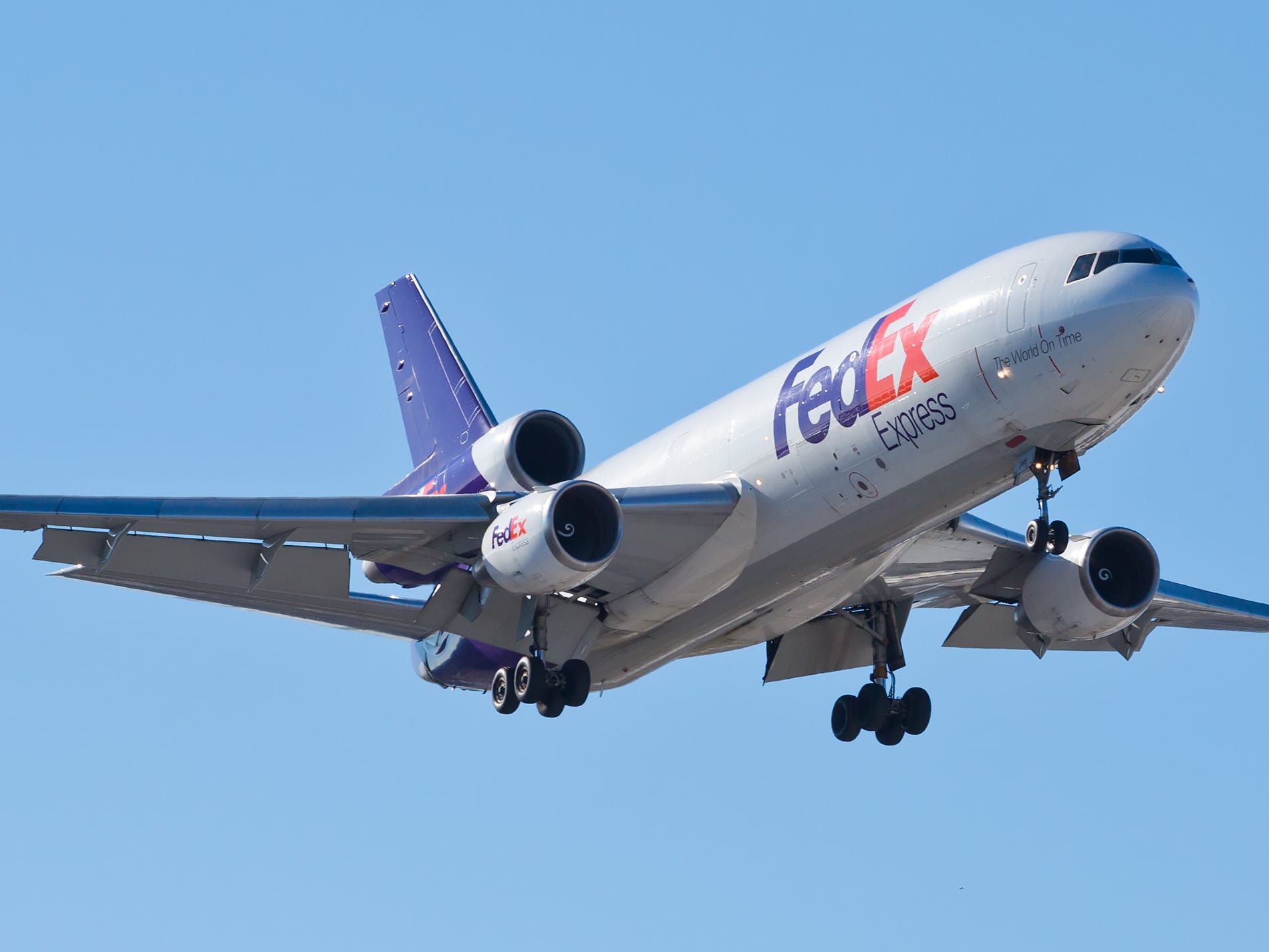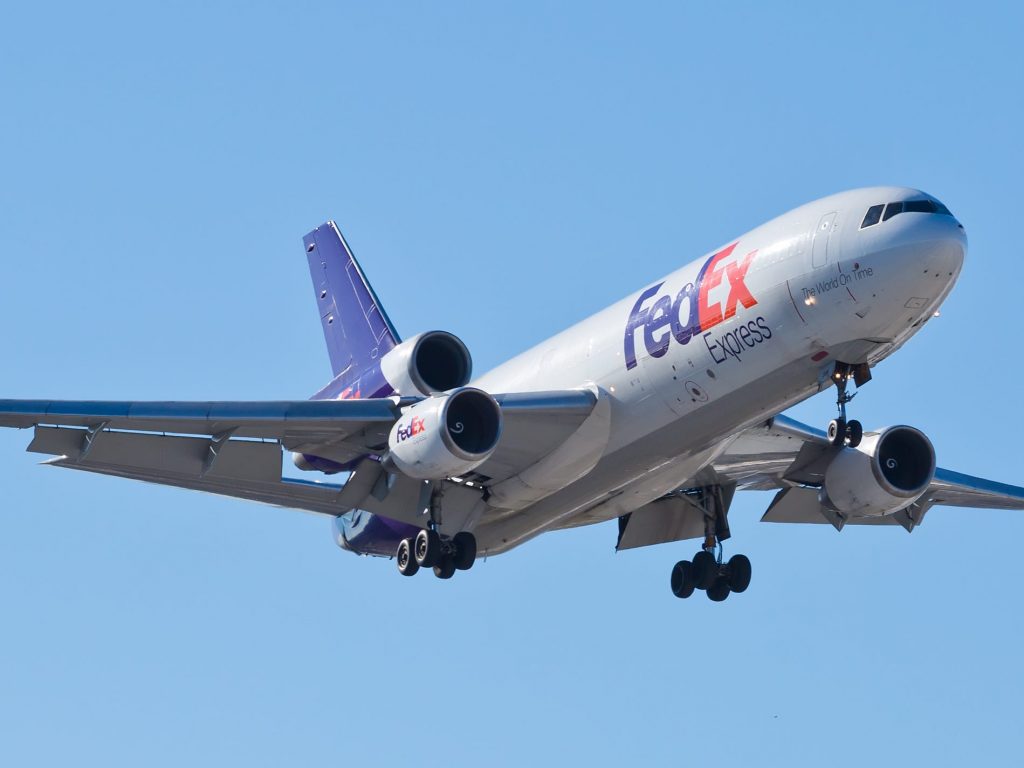
- FedEx is looking to install anti-missile lasers on some of its jets, according to a proposal it sent to the FAA.
- The request, submitted for government approval back in 2019, is atypical for commercial and civilian planes.
- The FAA will hear public comment for 45 days before making its decision on allowing FedEx to adapt the tech.
FedEx is looking to outfit some cargo planes with a unique protective measure — anti-missile laser technology.
The Federal Aviation Association (FAA) said in a filing on Friday it is currently reviewing a request from FedEx to add infrared laser technology to some aircraft. The technology is designed to project a laser outside the plane that counters and disrupts a missile's heat-seeking capabilities.
"In recent years, in several incidents abroad, civilian aircraft were fired upon by man-portable air defense systems (MANPADS)," the FAA document reads. "This has led several companies to design and adapt systems like a laser-based missile-defense system for installation on civilian aircraft, to protect those aircraft against heat-seeking missiles."
In 2003, a surface-to-air missile hit the left wing of an Airbus A330 operating for DHL just after takeoff from Baghdad, Iraq, but crew were able to escape unharmed. In 2014, a missile attack took out a Malaysia Airlines plane over Ukraine, killing 298 passengers.
According to the filing, the tech will be adapted onto the Airbus Model A321-200 — a twin-engine, transportation jet with seating for 220 passengers. FedEx operates the worlds largest cargo air fleet, with more than 650 total planes, but it currently does not own or operate any A321-200 aircraft.
FedEx did not respond to Insider's request for comment.
The feature, which the FAA document described as "novel" and "unusual," is not typically seen on non-military aircraft. The FAA's current design standards are not able to accommodate this technology, the filing also said, and the agency has no basis to determine whether the system will perform as intended.
"Infrared laser energy can pose a hazard to persons on the aircraft, on the ground, and another aircraft," the filing also said, citing several adverse affects on flight personnel and airport equipment. "The risk is high because infrared light is invisible to the human eye."
Though the FAA and Department of Transportation made the filing public on Friday, the proposal was originally submitted by FedEx in October 2019.
"With the modifications on [the aircraft], the FAA keeps careful track of anything that is done to a jet that might impact its flight characteristics," said Richard Aboulafia, a managing director at Aerospace consulting firm AeroDynamic Advisory.
FedEx could be looking at this as a one-off experiment, purchasing an A321 and testing the technology to see if it wants to add it to more of the company's fleet, Aboulafia told Insider. The company could also be planning on purchasing some A321 planes as part of a civil reserve aircraft fleet that the military could employ in hostile territories, he added.
The US government and other civilian American airlines have looked into adding their similar countermeasures to civilian flights for nearly two decades, though high cost and low risk of domestic missile attacks eventually dissuaded them.
Aviation regulators will spend 45 days hearing public comment it approves the infrared laser system.
